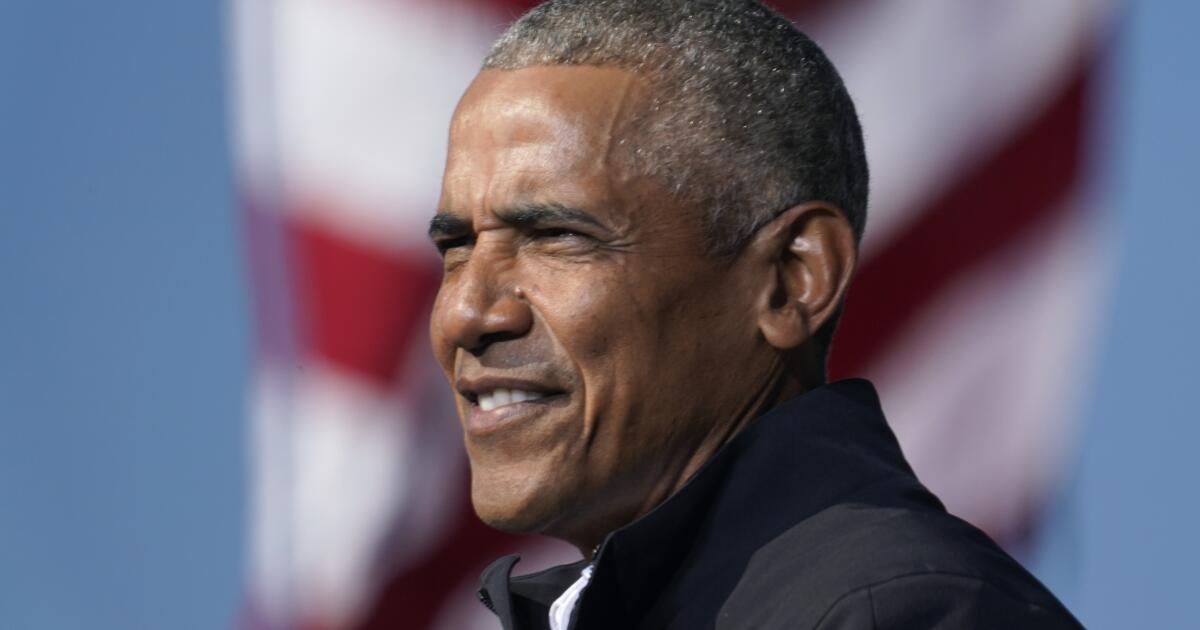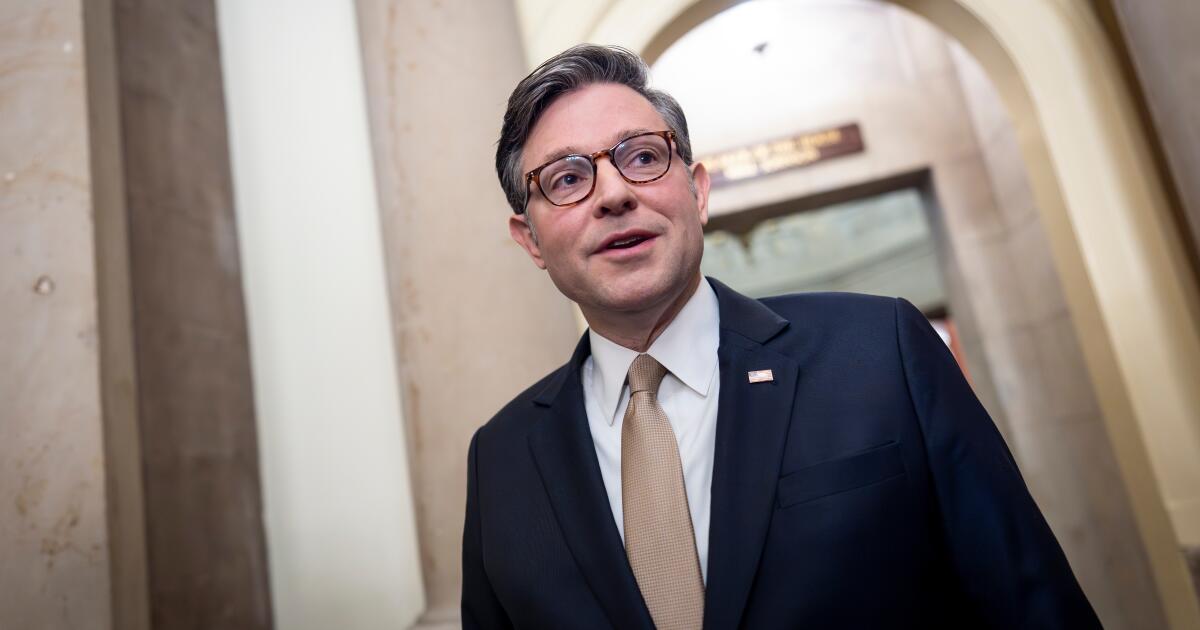Obama warns of ‘unchecked power’ in pro-Prop. 50 ad featuring ICE raids
As Californians start voting on Democrats’ effort to boost their ranks in Congress, former President Barack Obama warned that democracy is in peril as he urged voters to support Proposition 50 in a television ad that started airing Tuesday.
“California, the whole nation is counting on you,” Obama says in the 30-second ad, which the main pro-Proposition 50 campaign began broadcasting Tuesday across the state. The spot is part of a multimillion-dollar ad buy promoting the congressional redistricting ballot measure through the Nov. 4 election.
Proposition 50 was spearheaded by Gov. Gavin Newsom and other California Democratic leaders this summer after President Trump urged GOP-led states, notably Texas, to redraw their congressional districts to boost the number of Republicans elected to the House in next year’s midterm election, in an effort to continue enacting his agenda during his final years in office.
“Republicans want to steal enough seats in Congress to rig the next election and wield unchecked power for two more years,” Obama says in the ad, which includes footage of ICE raids. “With Prop. 50, you can stop Republicans in their tracks. Prop. 50 puts our elections back on a level playing field, preserves independent redistricting over the long term, and lets the people decide. Return your ballot today.”
Congressional districts were long drawn in smoke-filled chambers by partisans focused on protecting their parties’ power and incumbents. But good-government groups and elected officials, notably former Gov. Arnold Schwarzenegger, have fought to take the drawing of congressional boundaries out of the hands of politicians to end gerrymandering and create more competitive districts.
Obama, long a supporter of ending gerrymandering, had already endorsed the ballot measure.
In California, these districts have been drawn by an independent commission created by voters in 2010, which is why state Democrats have to go to the ballot box to seek a mid-decade partisan redistricting that could improve their party’s chances in five of the state’s 52 congressional districts.
The ad featuring Obama, who spoke Monday on comedian Marc Maron’s final podcast about Trump’s policies testing the nation’s values, appears on Californians’ televisions after mail ballots were sent to the state’s 23 million registered voters last week.
The proposition’s prospects are uncertain — it’s about an obscure topic that few Californians know about, and off-year elections traditionally have low voter turnout. Still, more than $150 million has been contributed to the three main committees supporting and opposing the proposition, in addition to millions more funding other efforts.
Obama is not the only famous person to appear in ads about Proposition 50.
In September, former California Gov. Arnold Schwarzenegger, who championed the creation of the independent redistricting commission while in office and has campaigned for similar reforms across the nation since then, was featured in ads opposing the November ballot measure.
He described Proposition 50 as favoring entrenched politicians instead of voters.
“That’s what they want to do, is take us backwards. This is why it is important for you to vote no on Proposition 50,” the Hollywood celebrity and former governor says in the ad, which was filmed last month when he spoke to USC students. “The Constitution does not start with ‘We, the politicians.’ It starts with ‘We, the people.’ … Democracy — we’ve got to protect it, and we’ve got to go and fight for it.”





